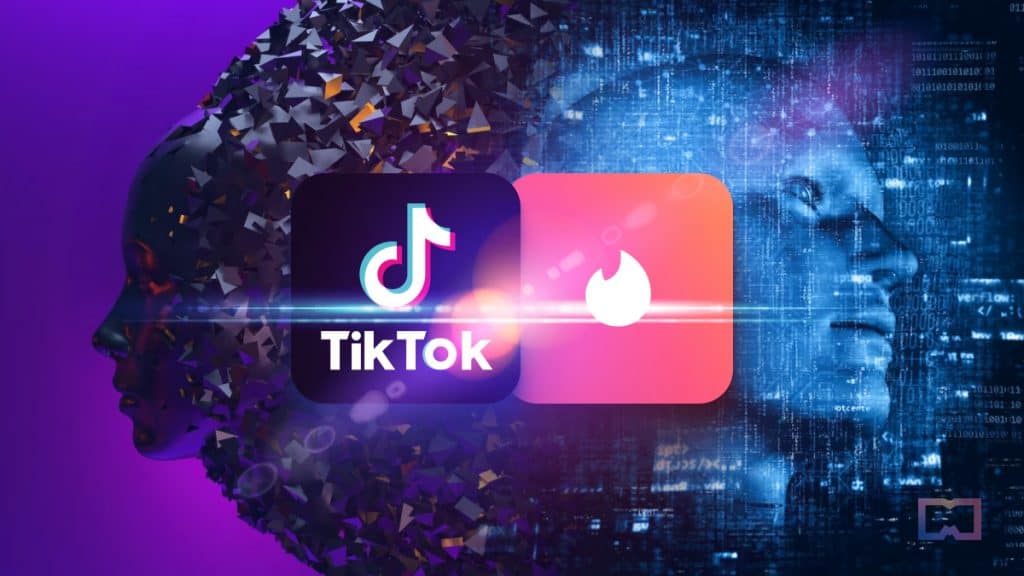Tiktok is Testing a Generative AI Avatar Creator; Tinder Rolling Out AI-powered Photo Verification Update

In Brief
Tiktok is reportedly testing a new generative AI avatar creator.
The AI avatar creator can generate up to 30 avatars in different styles.
Tinder is rolling out an AI-powered verification feature that requires users to upload a video selfie.

Tiktok is reportedly testing a new generative AI avatar creator, social media consultant Matt Navarra first discovered. The short video hosting company confirmed the development of the test product with TechCrunch and revealed that it is currently being tested in a few select regions.
According to Navarra, Tiktok’s AI avatar tool can only be used once a day. To use the tool, users need to submit three to 10 pictures of themselves. The avatar creator will take a few minutes to create up to 30 avatars in five different styles similar to the illustrative ones offered by Lensa, a popular AI photo editing app. Afterward, users can choose to download one, several, or all of the AI-generated avatars and set them as profile pictures.
The photos that are uploaded to the avatar creation tool will be moderated by TikTok’s content moderation systems, meaning that users cannot upload photos that violate the app’s community guidelines.
With the hype surrounding AI at an inflection point and the widespread use of AI-powered image editing software, such as last year’s viral sensation Lensa, it’s no surprise that Tiktok has started incorporating generative AI tools into its platform. In August 2022, Tiktok introduced a text-to-image AI generator in response to OpenAI’s DALL-E 2, enabling users to input a prompt and get an image that can be used as a video backdrop.
Tinder is another popular web3 app that integrates AI technology into its platform. It has rolled out an AI-powered update to its user verification feature. It now requires users to upload a video selfie to confirm that they are neither a bot nor impersonating someone else on the app.
TechCrunch has reported that an unnamed third-party vendor has developed the video selfie verification process for Tinder. Using 3D mapping, the AI-powered video selfie verification process will require users to complete a series of video-based prompts. The AI technology will then compare the individual in the video with the profile picture they want to verify.
As web2 applications race to introduce AI-powered functionalities, not all of these features are received positively by users. At the Snap Partner Summit held last week, Snapchat revealed its plans to introduce generative AI-powered AR lenses and offer its chatbot, My AI, for free to its 750 million users worldwide after its initial launch in February as a paid subscription service. However, Snapchat received an average rating of just 1.67 on the U.S. App Store in the past week, according to app intelligence platform SensorTower.
A one-star review on the App Store posted on Apr 23 reads: “Either make your new AI experiment bearable to speak to, or remove it from the top of my friends’ list and put it somewhere else… If you’re going to make an AI that “learns from the user.” Then how about actually making it learn? Allow it to mold itself based off the person it’s talking too, and make it adapt to their interests, lingo, and hobbies. It should be able to know what I’m interested in after talking to it enough, not just always be a blank slate.”
Read more:
Disclaimer
In line with the Trust Project guidelines, please note that the information provided on this page is not intended to be and should not be interpreted as legal, tax, investment, financial, or any other form of advice. It is important to only invest what you can afford to lose and to seek independent financial advice if you have any doubts. For further information, we suggest referring to the terms and conditions as well as the help and support pages provided by the issuer or advertiser. MetaversePost is committed to accurate, unbiased reporting, but market conditions are subject to change without notice.
About The Author
Cindy is a journalist at Metaverse Post, covering topics related to web3, NFT, metaverse and AI, with a focus on interviews with Web3 industry players. She has spoken to over 30 C-level execs and counting, bringing their valuable insights to readers. Originally from Singapore, Cindy is now based in Tbilisi, Georgia. She holds a Bachelor's degree in Communications & Media Studies from the University of South Australia and has a decade of experience in journalism and writing. Get in touch with her via cindy@mpost.io with press pitches, announcements and interview opportunities.
More articles

Cindy is a journalist at Metaverse Post, covering topics related to web3, NFT, metaverse and AI, with a focus on interviews with Web3 industry players. She has spoken to over 30 C-level execs and counting, bringing their valuable insights to readers. Originally from Singapore, Cindy is now based in Tbilisi, Georgia. She holds a Bachelor's degree in Communications & Media Studies from the University of South Australia and has a decade of experience in journalism and writing. Get in touch with her via cindy@mpost.io with press pitches, announcements and interview opportunities.





















































